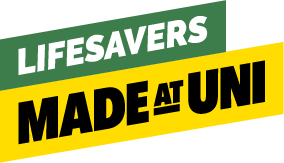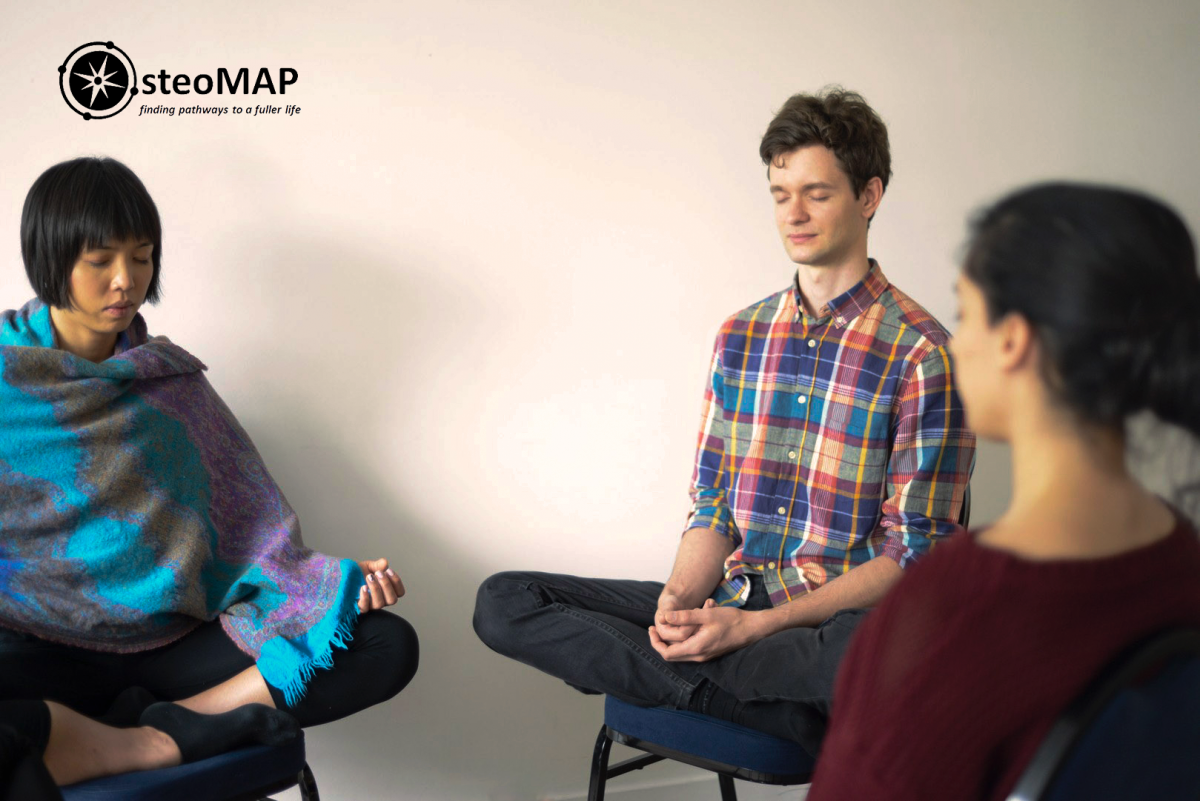People responsible for using virtual reality to help stroke patients recover, curing blindness, using AI to tackle heart disease, designing a device to help dogs communicate when cancer is present, as well as the UCO's OsteoMAP study, are among those named as the Nation’s Lifesavers.
16 May 2019

The Nation’s Lifesavers are the top 100 individuals or groups based in universities across the country whose work is saving lives and making a life-changing difference to our health and wellbeing. They have been named for the first time today as part of Universities UK’s MadeAtUni campaign, which brings to life the impact of universities on families, communities and wider society.
Universities were invited to nominate an individual or group who has made a significant contribution to the nation’s health and wellbeing. Over 100 universities submitted a nomination, including the University College of Osteopathy (UCO).
The Nation’s Lifesavers are battling diseases, tackling inequality, helping new parents and children enjoy the best start in life and supporting older people. In Mental Health Awareness Week, their stories show a huge contribution to improving our mental health and wellbeing.
The selection reveals the amazing use of technology, such as drones to fight malaria, a smart glove for communicating sign language and robots helping older people.
Stories of the Nation’s Lifesavers highlight how the value of universities stretches far beyond the educational opportunities and economic impact they provide. Whether you attended university or not, the likelihood is that everyone has directly or indirectly benefited from medical advances or health and wellbeing developments pioneered at university.
 The UCO’s contribution to the campaign is OsteoMAP, the Osteopathy, Mindfulness and Acceptance-based Programme, which examines the effects of integrating psychological interventions with osteopathy for chronic pain patients. It is the first study that combines mindfulness-based self-management with hands-on osteopathic treatment for individual patients with chronic pain. Most NHS pain management programmes deliver the physical and psychological aspects separately or are provided for groups of patients, not individuals. The 'step change' that has transformational potential is the integration of mindfulness practice with hands-on treatment.
The UCO’s contribution to the campaign is OsteoMAP, the Osteopathy, Mindfulness and Acceptance-based Programme, which examines the effects of integrating psychological interventions with osteopathy for chronic pain patients. It is the first study that combines mindfulness-based self-management with hands-on osteopathic treatment for individual patients with chronic pain. Most NHS pain management programmes deliver the physical and psychological aspects separately or are provided for groups of patients, not individuals. The 'step change' that has transformational potential is the integration of mindfulness practice with hands-on treatment.
We think that combining the two approaches helps patients understand their pain better, learn how to self-manage it more effectively, and generate transformational changes in their ability to live more active and fulfilling lives, despite chronic pain.
The study was the first major osteopathic project to be funded by the UK Department of Health. We collected data that suggests promising changes in patients’ quality of life and ability to cope with pain, which are associated with increasing mindfulness skills and ability to respond flexibly to pain.
OsteoMAP continues to make an impact on the health and wellbeing of patients who attend the UCO’s teaching clinic. The course of six sessions for individual patients was initially provided free of charge and is now offered at a subsidised rate. It's accessible and affordable.
The study has made a small but increasing national impact by training qualified osteopaths and student osteopaths to use OsteoMAP principles in their ongoing clinical work with patients with chronic pain throughout the UK.
OsteoMAP is a group project, headed by Peter Simpson (Clinic Team Lead, Course Tutor and Clinic Tutor), Soran David (M.Ost Unit Leader and Clinic Tutor) and Dr Hilary Abbey (Head of Research, Clinic Tutor and Project Leader of OsteoMAP) – all currently working at the UCO. The project was developed in collaboration with Dr Lorraine Nanke, a Principal Clinical and Health Psychologist working with the Surrey and Borders NHS Partnership Foundation Trust, who spent more than 20 years teaching psychological approaches to pain management at the UCO.
Dr Hilary Abbey, Head of Research at the UCO and OsteoMAP Project Leader, said:
“It's wonderful that we can be part of the MadeatUni campaign, especially as it helps to raise awareness of the difficulties that people with persistent pain face every day.
“At the UCO we are committed to researching ways of developing accessible community-based osteopathic healthcare services that improve patients’ abilities to be more active and to create a better quality of life for themselves.”
Charles Hunt, Vice-Chancellor of the UCO, said:
“The campaign is very timely and we are delighted to be recognised in this nation-wide initiative. We know that our work has a huge impact on patients’ lives, and we are pleased to be able to champion such important work during Mental Health Awareness Week.”
Professor Dame Janet Beer, President of Universities UK, said:
“When people think of lifesavers they understandably tend to focus on the dedication and skill of our doctors, nurses, carers, and paramedics – many of whom are trained at universities. Every day, up and down the country, universities are also working on innovations to transform and save lives. Research taking place in universities is finding solutions to so many of the health and wellbeing issues we care about and the causes that matter.
“By proudly working in partnership with charities, the NHS and healthcare organisations, universities are responsible for some of our biggest health breakthroughs and in revolutionising the delivery of care.
“This campaign is a chance to bring to life the wonderful and often unexpected work going on every day in our universities and to celebrate some of the people working to make a life-changing difference to us all.”
Research, carried out by Britain Thinks*, shows the public are proud of UK universities but have little understanding of the benefits they bring, with most not being aware that UK academics are behind many of the discoveries that save lives and keep up healthy.
Find out more about the OsteoMAP study and our treatment for patients experiencing persistent pain.
Watch a short video about OsteoMAP.
For more information about the campaign, visit www.madeatuni.org.uk, follow #MadeAtUni, or contact the Universities UK press team.
* Britain Thinks polled 2,063 UK adults online between 30-31 May 2018. Data was weighted to be representative of all UK adults.

